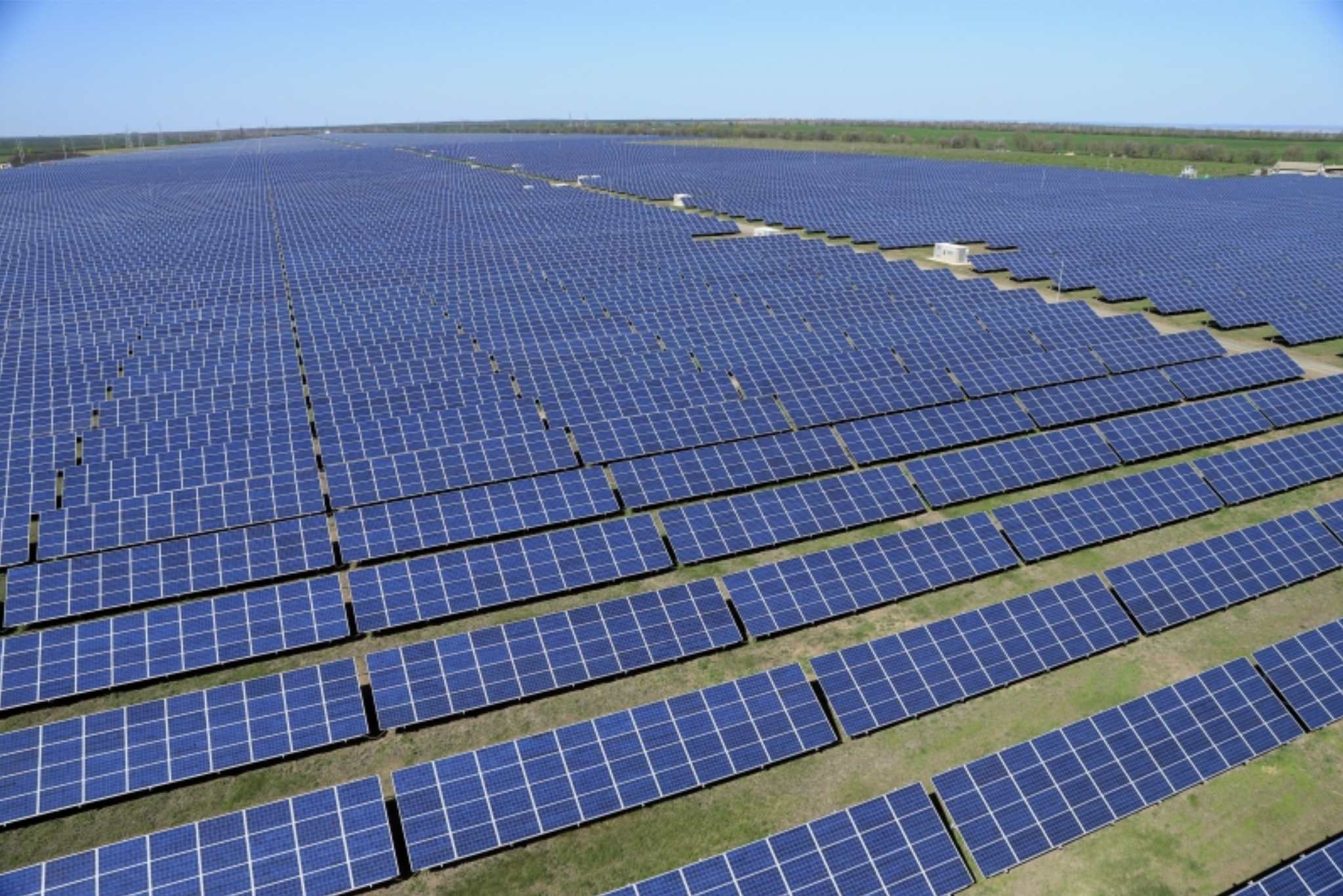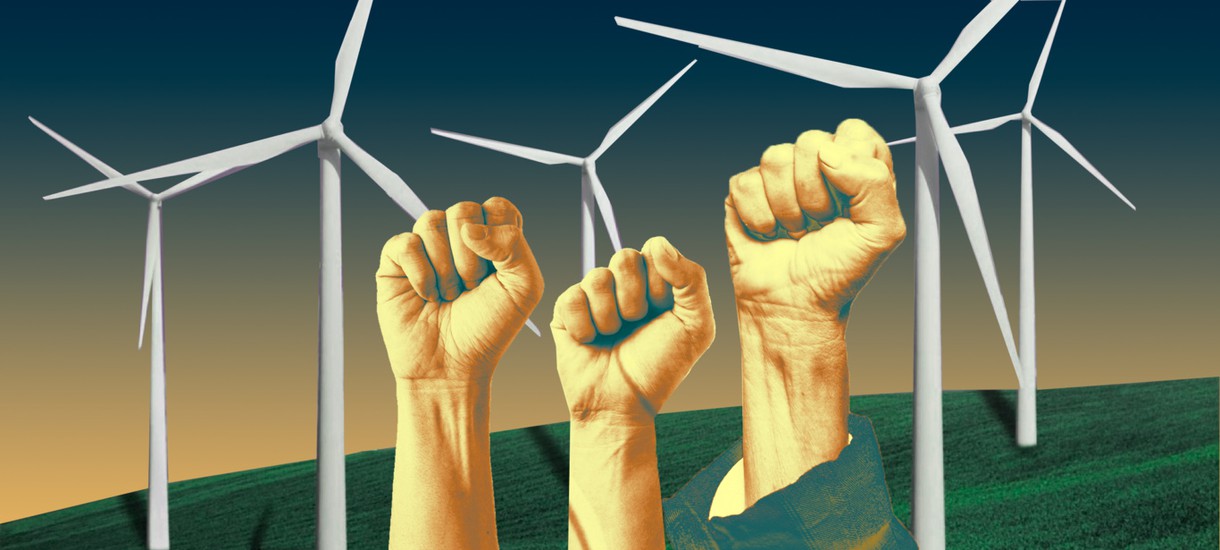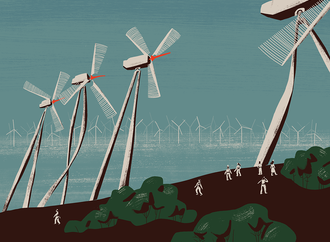It is difficult for all of us to talk about post-war reconstruction when the war is raging. Every day this means not only deaths and injuries, but also the destruction of civilian infrastructure, including power stations and boiler houses.
This winter, Ukrainians will be trying to protect themselves from bombs and bullets, but also trying to stay warm and healthy in the face of disruptions to gas, heat and electricity supplies. But even under these circumstances, discussion has begun about post-war reconstruction, in the first place between the Ukrainian government and European governments at the Lugano conference. They are making plans for the long term.
The labour movement, and social movements, need an approach to these issues that takes the side of working people and of society, as opposed to economic or political elites. I will suggest some principles on which the labour movement and social movements in Ukraine could base their approach to the energy system.
1. Energy should be supplied mainly from renewable sources.
Society internationally needs an energy transition – that is, a transition to a system without fossil fuels, centred on electricity networks, with the electricity generated from renewable sources such as solar, wind and wave power. In Ukraine, there is also some potential for biofuels made from agricultural waste.

Photoelectric solar power plant near the village of Starokozache in Odesa region, built by the group of companies "Activ Solar". Photo: flickr.com
I am sure everyone present knows why this is: because global heating could seriously damage human society, and the chief cause of global heating is the burning of fossil fuels. For the last 30 years, the world’s most powerful governments have gone to great lengths to delay the energy transition while simultaneously pretending to deal with the problem.
Two points to make about Ukraine specifically.
- Coal has historically been central, in the Donbas in particular. Coal use has been falling since 2016, mainly due to Russian military aggression. Now, political forces in the Donbas are discussing a future without coal. For example in the recent open letter by the Mayors of Myrnohrad, Chervonohrad and other towns. I hope that the labour movement and social movements will engage in this discussion.
- Gas has also played a key role. The government has sought to reduce dependence on Russian gas, and there have been no direct imports since 2015. However, in Ukraine, as elsewhere, gas companies make the false argument that gas is part of the solution to the problem of greenhouse gas emissions, because it produces energy with fewer emissions than coal. Actually, it’s part of the problem. The energy transition means moving away from gas.

Photo: facebook.com.verkhovna.rada.ukraine
2. It is in society’s interests to cut the flow of energy through technological systems.
To understand this, we should, first, forget the idea of “energy demand”. People do not want “energy”. They want the things that it provides – heat, light, electricity to run computers, the ability to travel from place to place, and so on. These things can be provided, using far less energy than is used now, by making better use of technologies that have existed for decades.
An obvious example is heat for people’s homes. In Ukraine, this comes mainly from gas boilers, or by district heating systems based on combined heat and power plants.
Governments, not only in Ukraine but across Europe, can start tackling this problem now. First, we need insulation, to reduce the amount of heat needed. Second, we need electric heat pumps that are four or five times more efficient than gas boilers. This would keep people warm, reduce the amount of gas needed and cut greenhouse gas emissions. These technologies are very simple, although retrofitting them to old buildings can be tricky.
These are short-term measures. In the long term, engineers see the creation of integrated urban energy systems as the priority. In such systems, there would be multiple inputs of renewably-produced electricity. These would be integrated with a range of electricity storage facilities, from hydro storage to electric vehicles. These systems can be integrated, but also decentralised. This makes them more compatible with collective, non-state forms of social organisation that socialists favour.
Non-governmental organisations in Ukraine who favour such systems have advanced the idea of “energy freedom”, that is, “the greatest possible freedom for citizens, organisations and communities to produce energy and manage it in their own economies”. In my view, socialists should take part in the discussion about what this means in practice.
3. We should demand that fuels and electricity are treated as services, as rights for all, not as commodities.
Now, after decades of neoliberalism, oil, gas and electricity are treated as commodities not only for international trade but, in many countries, in retail markets.
In Ukraine there is a public service obligation on companies to supply electricity and gas to households at fixed prices. There are discussions at government level about how to change this system, in the name of reducing inefficiencies.
It’s a basic principle for the labour movement that these changes should not be made at the expense of households. However, we should also go further, and challenge the notion that fuels, or electricity, are commodities to be bought and sold.

Natural gas pipes at Gazprom's warehouses. Photo: Depositphotos
4. We should favour technologies that are compatible with our aims of social justice, and resist the imposition of technologies that serve the state and capital.
This is relevant to post-war reconstruction.
The EU has its “green new deal”, that involves a limited shift to renewable energy supply technologies, but that protects powerful energy corporations and liberalised markets. Many Ukrainian politicians are happy with this political framework and some of the technological choices it implies. This takes them along paths that I believe the labour movement and civil society should oppose.
For example, the EU is discussing plans to produce electricity from big wind and solar farms in Ukraine, and use it to produce hydrogen for export. The hydrogen would be produced by electrolysis of water, a very energy-intensive process.
This is greenwash at its worst. Clearly, Ukraine needs electricity from wind and solar to end its reliance on coal and gas. To use it, instead, to produce hydrogen for export would be a form of neo-colonialism. I hope the labour movement and civil society, in Europe and Ukraine, will block this plan.
Another live political issue is whether new nuclear plants, specifically Khmelnitsky-3 and Khmelnitsky-4, should be built. This is in the interests of some Ukrainian politicians and business elites, but not in society’s interests. It is feasible to aim for a system that provides the electricity that Ukraine needs from renewable sources, without new nuclear. So investment in it will obstruct this aim.
Of course behind this there are broader arguments about whether and how nuclear power should be part of post-fossil-fuel energy systems at all. I am not enthusiastic about nuclear power, because it is by its nature closely bound up with powerful state and military structures. By contrast, decentralised renewable technologies are by their nature compatible with collective, egalitarian ways of organising society.








